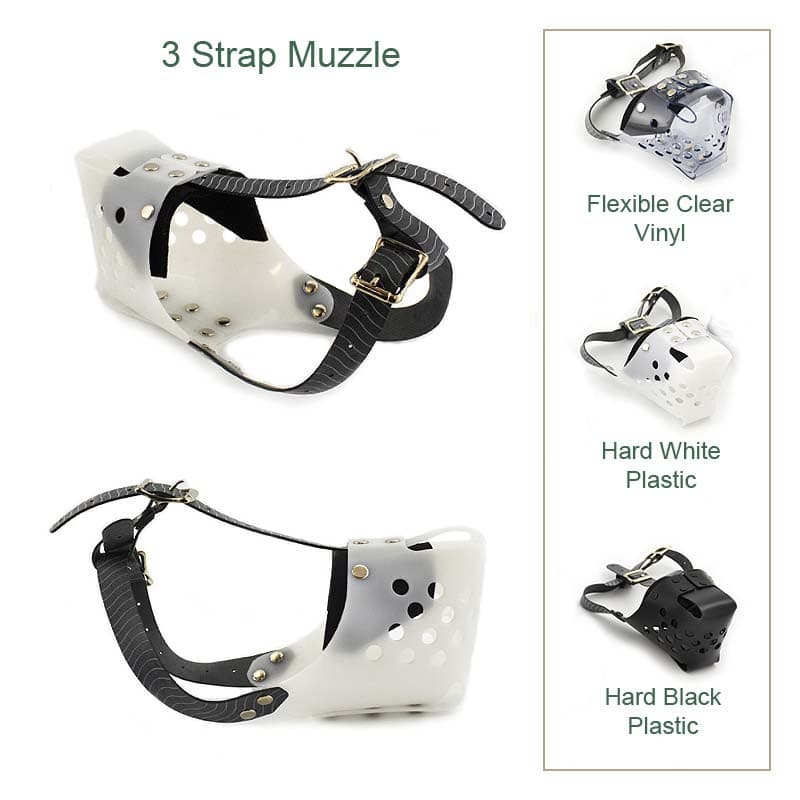Are Collagen Dog Chews the Same as Rawhide?


The wide array of chew options available in the market often leaves pet parents unsure about which one is most suitable for their dog. While rawhide has long been a popular choice, there is now a plethora of rawhide alternatives to consider.
Among these alternatives, collagen sticks have been gaining rapid popularity. They serve as a viable substitute for rawhide and possess similar characteristics. However, it is important to note that despite their similarities, collagen sticks do have a few distinguishing features that should be taken into account when selecting the perfect chew for your furry companion.
Continue reading to find out more about whether collagen chews are the same as rawhides.
What Are Collagen Chews?
If you're curious about collagen chews for dogs, it's essential to understand what collagen is and its significance. Collagen is a protein found abundantly in all living animals. It serves as a fundamental component of connective tissues, acting as a versatile "glue" that provides strength, flexibility and aids in the healing process.
Collagen comprises specific amino acids, including glycine, proline, arginine, and hydroxyproline, coupled with essential nutrients like vitamin C and minerals. While collagen naturally occurs in both humans and dogs, it's important to note that its levels fall with age. Because of this reduction, many dog owners explore collagen chews as a means to maintain their canine companions' bone, skin, dental, and joint health in the long run.
Collagen Chews
With the increasing interest in collagen and its potential benefits, a wide range of collagen supplements are available, including collagen powder and soft chews. However, just like with vitamins and minerals, obtaining nutrients from whole food sources is generally more advantageous whenever possible. In this case, there is an intriguing option: a large stick of collagen.
Collagen Chews are dog chews made from a single ingredient. They resemble popular natural chews such as bully sticks, but rather than being derived from muscle tissue, these sticks are crafted from the high-collagen corium layer of beef skin. This layer is carefully dried or baked to create a durable, single-sheet chew that can be rolled into a delicious treat. Not only does it provide a satisfying chewing experience, but it also keeps your dog occupied for a significant amount of time.
What’s Rawhide?
Rawhide refers to a type of chew that is made from the inner layer of an animal's hide, typically derived from cows or horses. It is a popular choice for many pet owners as it is long-lasting and can provide entertainment and dental benefits for dogs. Rawhide chews are typically processed by removing the hair and fat from the hide, followed by a series of cleaning, cutting, and shaping steps. The hides are often treated with various chemicals, such as preservatives and flavorings, to enhance their taste and prolong their shelf life.
Rawhide chews come in different shapes, sizes, and textures, catering to various dog breeds and sizes. They are commonly available as bones, twists, chips, or rolls. Dogs are attracted to the taste and texture of rawhide, which encourages them to chew on it for extended periods. Chewing on rawhide can help satisfy a dog's natural instinct to chew, promote dental hygiene by reducing plaque and tartar buildup, and provide mental stimulation.
Are Collagen Chews Safer Than Rawhide?
Collagen chews are generally considered to be a safer alternative to rawhide chews for several reasons.
Firstly, rawhide chews can pose a choking hazard, especially for aggressive chewers or dogs that swallow large chunks of rawhide. Since rawhide is relatively tough and doesn't break down easily, it can cause blockages in the digestive system if swallowed in large pieces. On the other hand, collagen chews are typically softer and more easily digestible, reducing the risk of choking and digestive complications.
Secondly, rawhide chews are often treated with various chemicals during processing, such as preservatives and flavorings. While these additives may enhance rawhide's taste and shelf life, they can potentially cause allergic reactions or gastrointestinal upset in some dogs. Collagen chews, on the other hand, are usually made from a single ingredient and do not contain as many additives or artificial substances.
Furthermore, rawhide chews have been known to cause gastrointestinal irritation or blockages in certain dogs. After consuming rawhide, some dogs may experience digestive upset, including diarrhea or vomiting. Collagen chews, being more easily digestible, are generally gentler on the digestive system and less likely to cause these issues.
However, keep in mind that individual dogs may still have different reactions to collagen chews, and there is always a potential for allergic reactions or digestive sensitivity. Thus, it’s a good idea to introduce any new chew or treat gradually, monitor your dog's response, and consult with your veterinarian for personalized advice based on your dog's specific needs and health considerations.
Get the Best Collagen Dog Chews for Your Dog
Consider adding nutritious collagen chews to your dog's diet and treat them to a delightful protein supplement. If you're looking for a reliable source, Pet Expertise is here to assist you. Created in 2003 by dog trainer by Jess Rollins, Pet Expertise offers positive dog training products to its customers.
Recognizing that every dog is unique, our product range includes collagen sticks, allowing you to give your furry friend fun and nutrition. At Pet Expertise, our primary goal is to guarantee your dog's happiness and well-being. That's why our tasty dog chews are crafted without any harmful bleaches, preservatives, or additives, ensuring a wholesome treat that your furry companion will adore.
Click here to check out our collagen dog chews.
- Choosing a selection results in a full page refresh.
- Press the space key then arrow keys to make a selection.



